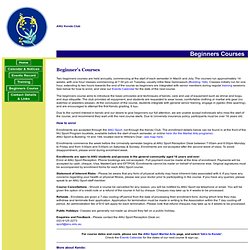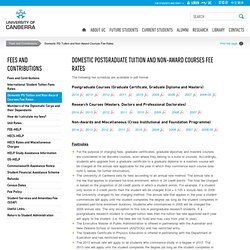

ANU Kendo Club. Beginner's Courses Two beginners courses are held annually, commencing at the start of each semester in March and July.

The courses run approximately 14 weeks, with one hour classes commencing at 7:30 pm on Tuesday, usually inthe New Gymnasium (Building 19A). Classes initially run for one hour, extending to two hours towards the end of the course as beginners are integrated with senior members during regular training sessions. See below for how to enrol, and view our Events Calendar for the date of the next course. The beginners course aims to introduce the basic principles and techniques of kendo, care and use of equipment such as shinai and bogu, and dojo etiquette. Due to the current interest in kendo and our desire to give beginners our full attention, we are unable accept individuals who miss the start of the course, and recommend they wait until the next course starts.
How to enrol Enrollments are accepted through the ANU Sport, not through the Kendo Club. More about Kendo: Ajsact.com.au. IFIE Program @ ajsact.com.au [LOOKS AMAZING] The Australia-Japan Society of the ACT (AJS ACT), in conjunction with the Ishikawa Foundation for International Exchange (IFIE), is again calling for applications for the two-week in-country course in Japanese language/culture in Kanazawa.
![IFIE Program @ ajsact.com.au [LOOKS AMAZING]](http://cdn.pearltrees.com/s/pic/th/ifie-program-ajsact-com-au-47842975)
This will be the 20th course that has been run under this program. The course will run for 2 weeks from Sunday 13 April to Friday 25th and includes intensive language lessons, cultural activities and home stay accommodation with a Japanese family – this latter is one of the outstanding features of the program and will certainly give a boost to your language skills. The AJS two week course doesn’t, of course, cover the full range of activities shown for the longer courses in the video, but there are many common features. During the course, mornings are spent in formal language classes and, most afternoons, opportunities are provided to explore the local culture, either in organised classes or by exploring on your own. Contact. Domestic Postgraduate Tuition and Non-Award Courses Fee Rates : Fees and Contributions.
The following fee schedule are available in pdf format.

Postgraduate Courses (Graduate Certificate, Graduate Diploma and Masters) Research Courses (Masters, Doctors and Professional Doctorates) Non-Awards and Miscellaneous (Cross Institutional and Foundation Programme) Footnotes For the purpose of charging fees, graduate certificates, graduate diplomas and masters courses are considered to be discrete courses, even where they belong to a suite of courses. Generally, tuition fees are calculated on a fee-per-unit basis to cater for students who wish to study on a part-time basis. The annual fee rate for a particular course (please refer to the relevant current fee schedule above); The minimum credit point requirement for course completion; The duration of the course for a standard full-time student; and The credit points achieved by studying the unit.
All of the above factors are then used to calculate what is known as a student's Equivalent Full-time Study Load (EFTSL). Example. Domestic Postgraduate Tuition and Non-Award Courses Fee Rates : Fees and Contributions. Learn Japanese Online - Write or Speak in Japanese Language Exchange. Online Japanese Language & Culture Resource Community. Learn Japanese Free. Online Japanese Language & Culture Resource Community. Learn Japanese with Free Japanese Lessons - Learn to speak the Japanese language online for free! Language exchange - making language exchange ,Japanese,learn Japanese. Japanese Language and Culture Meetup Groups - Japanese Language and Culture Meetups.
Japanese Language School - Study Abroad in Japan - Japanese Language Studies at The Yamasa Institute. Japaneasy [Melbourne] Teaching English in Japan.